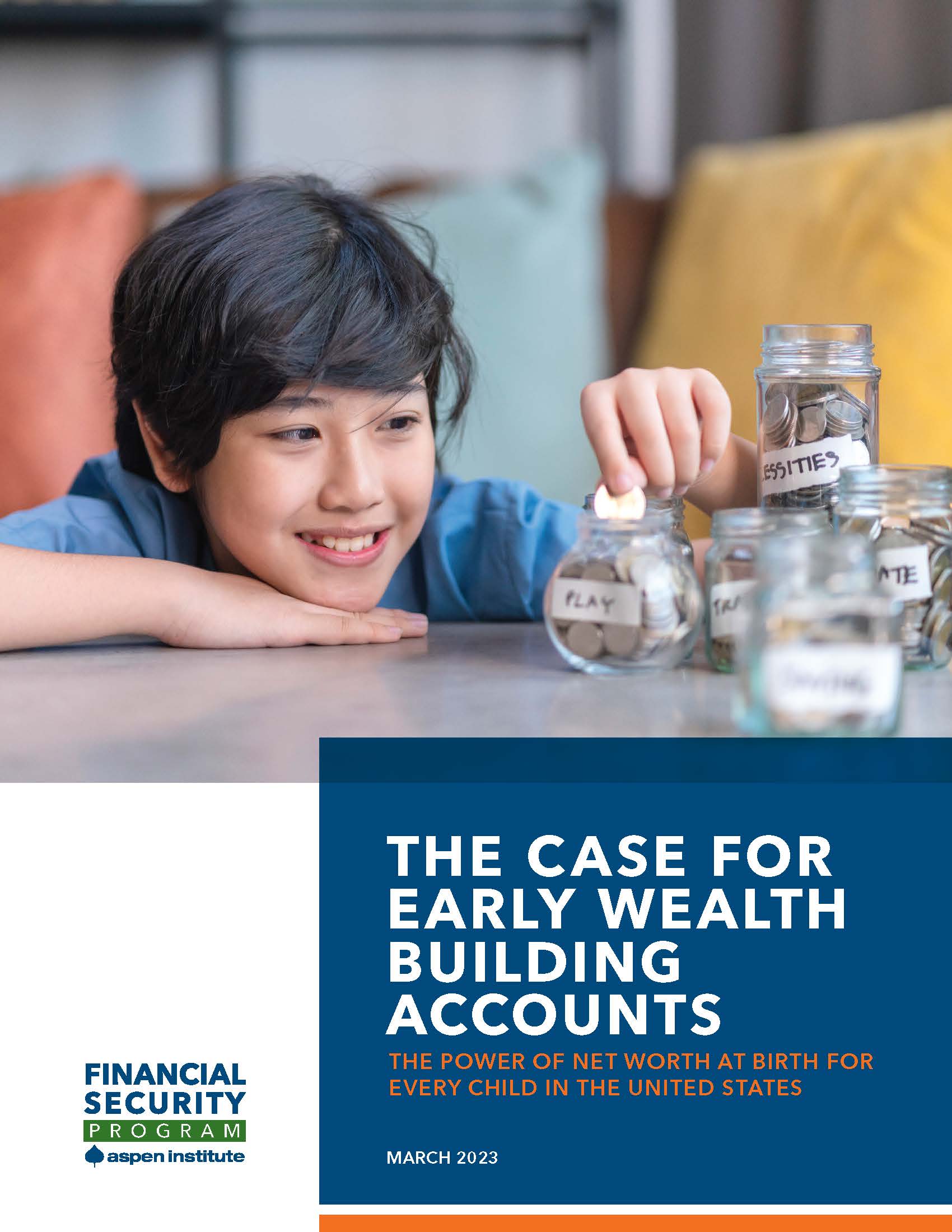Aspen FSP research on the Future of Wealth has shown that to succeed in the United States economy, people need to enter adulthood–a life stage when many critical investments are made – with a substantial amount of money to invest in themselves and their future. The importance of what we’re calling “investable sums” in young adulthood has become increasingly clear over the last decades, as the cost of obtaining wealth-building assets in the United States has skyrocketed while incomes have stagnated.
During the past few decades, leaders from the worlds of Child Savings Accounts, 529 plans, Baby Bonds, and beyond have questioned why saving and investing usually only begins after someone enters the labor market. Through pilots, growing programs, and the pursuit of policy change, these leaders have begun to demonstrate the wealth-building–and life-changing–potential of solutions for building net worth from birth. We now have an opportunity to expand the coalition of leaders focused on this opportunity, advance the conversation, and ultimately scale up solutions that will expand access to these solutions–what we call “Early Wealth Building Accounts.”
Our report includes insights into:
- What Early Wealth Building Accounts Are and Why People Need Investable Sums in Young Adulthood
- Why Investing Early is the Best Way to Leverage the Capital Markets and Achieve Investable Sums for Young Adults
- Policy Design and Meta Principles for these Accounts
- Next Steps for Consideration
We know we need multiple solutions to reverse the generational decline in upward economic mobility. We think a promising, and possibly essential, one is for every person to enter adulthood with an investable sum and with a tangible stake in our country’s saving and investing infrastructure that can set them up for long-term success. To realize this vision, key stakeholders need to act together, including families, the public sector (local, state, and federal government), community groups, non-profits, foundations, and the private sector.
Funder Acknowledgment
This report was developed with support from Prudential Financial.


